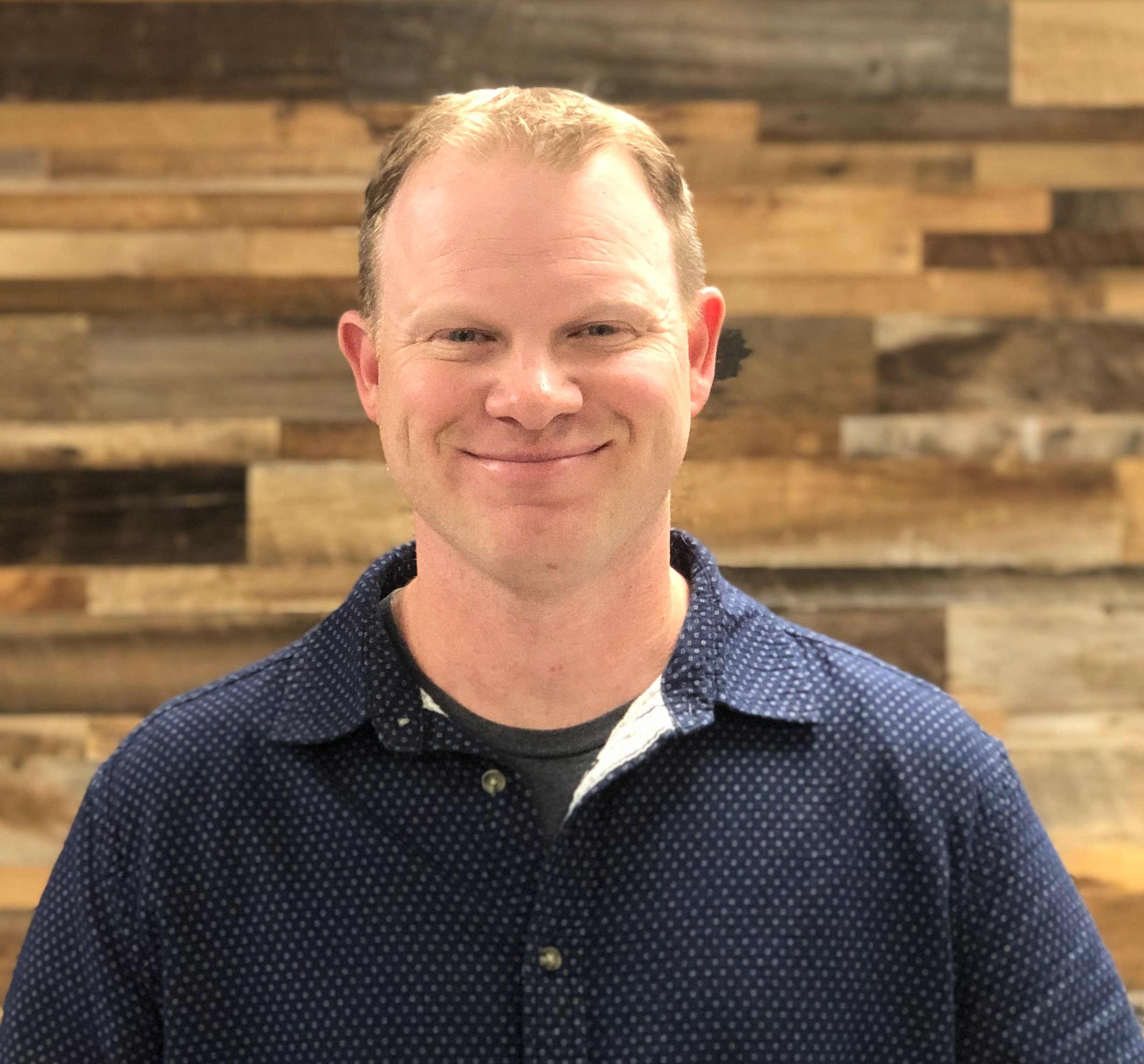.jpg?width=446&name=sc-social-blog-post-template-Paul%20(1).jpg) Paul Klebanov of SEMrush acquired more entrepreneurial experience and success before 30 years old than most people attain in a lifetime. As an ambitious youth, Paul got a job right out of high school as a web admin, which later progressed into a web developer position where he learned converting interest to sales is the ultimate gateway. He continued to learn everything about marketing he possibly could including inbound marketing, SEO, sales psychology, paid traffic, content marketing, social media and more. Paul’s experience and knowledge obtained as a web developer gave him the confidence to put his true entrepreneur heart forward and soon become one of the youngest people to build a leading American e-commerce retail business.
Paul Klebanov of SEMrush acquired more entrepreneurial experience and success before 30 years old than most people attain in a lifetime. As an ambitious youth, Paul got a job right out of high school as a web admin, which later progressed into a web developer position where he learned converting interest to sales is the ultimate gateway. He continued to learn everything about marketing he possibly could including inbound marketing, SEO, sales psychology, paid traffic, content marketing, social media and more. Paul’s experience and knowledge obtained as a web developer gave him the confidence to put his true entrepreneur heart forward and soon become one of the youngest people to build a leading American e-commerce retail business.
Despite his incredible work ethic, drive and commitment to learning everything needed to grow his company, Paul missed scrutinizing an important area of his business – specifically the mechanics and banking. This critical miss forced him to abandon his dream for the time being and find another avenue in which to share his expertise. Now as a digital marketing strategist and speaker for SEMrush - the world's leading competitive research tool for online marketers - Paul uses his words and speeches to take away the mystery of marketing and replace it with knowledge and the “a-ha!” moments that provide crystal-clear clarity.
I enjoyed hearing Paul’s incredible story and learning more about his upcoming talk at Experience Inbound: 3 Unconventional Ways To Hack Your Funnel Into A Sales Conversion-Driving Machine.
In this video, we discuss Paul’s journey from entrepreneur to marketing educator, important data all organizations should be tracking, the validity of keyword optimizing, organic traffic-building strategy and much more.
Following our video discussion, Paul shared some additional insight into his entrepreneurial experiences, thoughts on the common SEO misconceptions and traps marketers fall into, lead generation advice and what he hopes attendees will walk away with following his sessions on June 13 & 14.
You experienced more entrepreneurial success in your twenties than most experience in a lifetime. First, tell us a little about how using specific inbound marketing tactics and creating a lead funnel helped you build a successful e-commerce retail business?
75% of the 1st clicks were attributed to organic search. One of the most effective strategies I used was setting up win-back campaigns by layering my channels.
Here is how it worked:
Step 1:
When a visitor abandoned my product details page I would use retargeting to lead them to a generic newsletter offering discounts for selected products in my Ecommerce store.
Step 2:
After they opted-in I would use Maxmind’s GeoIP API to get the visitors location.
Step 3:
I would then map their location with the product they looked at in step 1, the states where the product shipped from, and the shipping cost.
Step 4:
I would algorithmically determine if I could save on shipping for that specific customer and pass the discount over to them via another retargeting ad.
For example:
If both the customer and product are located in Texas, and the shipping cost was $100.00 versus the $300.00 I would pay on average, I would take the difference and pass the saving through an ad.
The next time they went on facebook or a site in the GDN network they would see an image of the product they were introduced to in in step 1 with a $200.00 discount offer available via a phone verification code.
The algorithms I developed got very complex since I factored in customer acquisition costs.
If I didn’t make a certain profit margin on a product then I would not create data feeds, and advertise that product anywhere. Additionally, I would map each product details page to my competitors so if someone in the industry would lower their costs and/or break their map pricing my entire team would get an email and the vendor would get alerted immediately.
It got to the point where vendors started requesting these reports weekly since it helped them police their partners.
I would also do little things like behavioral based pitching. So, if a visitor abandoned my checkout page, I would email them with a discount code based on the total value in their shopping cart.
I sent emails based on what people did in my store and it was worked out very well for conversions.
You’re candid about the failure of your business. How did that experience propel you on your current path as an inbound marketing strategist and educator for SEMrush?
In 2012, I had an itch to scale my business so I started to invest my profits into paid media. After losing over $10k on my first PPC campaign running Amazon listing ads, I came to the realization that I wasn’t a really good marketer.
Just because companies like Google and Microsoft came along and built a wall that you need to climb in order get a user’s attention, it doesn’t mean that SEO is marketing.
Marketing is a discipline founded on the principles of consumer psychology – not bot psychology. If you want to climb the wall to get to your user’s attention, then SEO is a discipline that you should consider. Marketing is less about wall climbing and more about knowing what to do once you’re on the other side.
After spending the last 3 years growing my business through wall climbing, I forced myself to learn a new discipline. I started reading about marketing. I read books on storytelling, consumer psychology, analytics, PPC. I read online forums, blog posts. Everything I could get my hands on.
I started doing things like layering my channels as described earlier and started using PPC for not only lead generation, but assisting conversions. I started tracking the entire conversion path of my funnel, doing cohort analysis, attribution modeling, conversion tracking, multi-variant testing. Suddenly every subtle tweak would significantly increase the performance of my site, and I grew faster because of it.
By Q4 of 2014 I added 4 more flagship sites, but, in 2015 my merchant bank placed me on the black list for high chargebacks and selling products that I wasn’t registered to sell. I was banned from selling online. No forever, but for many years.
So, I started looking for a job. I came into SEMrush as a digital marketing strategist, but I like to talk, so after annoying everyone in the company for over 1 year, I finally got the go ahead to talk about the topics that I love most.
Today I am a speaker and marketing educator. My day consists of creating educational material, and doing interviews like this.
The concept of inbound marketing was built on creating non-disruptive content that can be found through the use of keywords. Is keyword optimizing still a valid search tactic?
I like to say that “great marketers make even greater psychologists.” There is not a single engineer at Google that is allowed to tweak and optimize the algorithms that determine the rank for your pages. It’s all done via machine learning. Our brain is a computer made out of meat, and Google is trying to replicate it.
They allocate CPU usage so that RankBrain can go around the web and become an expert by reading every article in Google’s index. Because of this RankBrain has more knowledge about bodybuilding then Arnold Schwarzenegger and more knowledge about physics than Albert Einstein. It has the context to determine which article was written by an expert, and which one wasn’t. What is a great answer, and what isn’t.
Without getting into too much detail about Google’s RankBrain algorithm it’s important to understand that the rank of your specific SERP’s is not only based on the trust signals surrounding your content, but also about the authority of the individuals that wrote them.
When you look to write about the subject matter, I recommend you think less about the keyword and more about the intent behind the search. Look at what Google finds semantically relevant to the keyword you are trying to rank for, and include those in your article. Don’t just write on your domain, but contribute to others. Utilize Haro requests and pitch both contributors and editors for inclusion of your content on their channels.
SEMrush provides advanced intelligence for competitive analysis as well as insights for internal marketing strategies. What are the top 3-5 types of data you recommend tracking or analyzing?
Brand mentions: Because the rank of your specific SERP’s is not only based on the trust signals surrounding your content, but also about the authority around the individuals that wrote them, you need to become an authority. To do this I recommend you use our Brand Monitoring Tool to track where the top influencers in your space are writing content and go write there as well.
Relevance Gap: Every keyword in our database has a Keyword Difficulty Score with a range from 0 - 100. The score is calculated based on the top domains ranking in the first 20 results for that keyword in relation to the top 1 – 100,000 domains in our database. In more simple terms, this exposes Google's relevancy gap. If Google is not ranking the top 100,000 domains in the top SERP’s for your given keyword, then their bots are trying very hard to find a good answer for the user’s query. This exposes opportunity for you to come in, write a great article and rank for that keyword.
Trust signals for the domain:
We have over 1.1 trillion backlinks in our database and each link has a:- Page Score – Quality and volume of links to the page
- Trust Score – Links from trusted sites
You can look at your competitor’s backlinks and get a complete landscape of their off-page SEO efforts. Just remember, just because you are linked from higher authoritative and more popular websites doesn’t mean that you will outrank them. You need to be the best at answering people's questions, and the author of the article needs to be an authority since ‘expert’ trust signals are so important.
How often should marketers check keyword rankings? Daily, weekly, monthly?
- If search engine bots can’t find a page, then they can’t crawl it.
- If they can’t crawl a page, then they can’t index it.
- If they can’t index a page, then they definitely won’t be able to rank it.
I like to check my rankings weekly. Every week I want to get a report because I want to pinpoint when and where there’s an error.
If I am not in the Google's index, then I can’t rank the page because of a crawl error.
I watch my keywords like a hawk and I recommend you do the same.
What current strategies do you see working well in regard to building organic traffic – particularly for B2B businesses?
It depends on the business, but in general high ticket B2B services require more nurturing. Demos, calls, consultations, etc..
Here are two tips:
Tip 1:
Most marketers build customer personas and segment their traffic from the outside, but forget about the inside.
Use behavioral based pitching with an email marketing automation platform like drip.co to create a lead scoring system and segment your traffic from the inside. If a visitor in your existing database looks at your higher ticket offerings then you can increase his score and nurture him based on the doors he opens on your site.
Every link on your page is a door, so tag it and watch who opens what. My strategies are more about listening than talking. I look at what happens, wait, and then do something.
Tip 2:
Focusing on local SEO would help you land more clients, more quickly. It’s not much different then the SEO you are doing now. High ticket services require more nurturing so the only thing that you need to add to your backlink profile to rank locally is some local relevant backlinks.
Use the Positions Tracker Report within SEMrush, put in your competitors and track where they’re getting their citations. Once you show Google that you are locally relevant, you will get local traffic.
Tip 3:
Become an authority by writing for other channels.
What are some of the most common misconceptions or traps marketers fall into when investing time and budget for SEO strategy and reporting?
When you create great content, it can assist in generating new awareness and leads into your funnel as well as conversions. The biggest mistake is that people don’t think through the buyer's journey (Awareness, Consideration, Inquiry, Purchase) before writing their content.
I will give some more examples below:
- They only write content on their own domain so Google doesn’t see them as an expert.
- Instead of being presented in a story format that engages the reader, their content is delivered as an exposition with cold, raw text.
What content marketing / lead generation advice would you give a marketer just starting their career?
- Love the topic you are communicating and educating your readers with.
- Become an expert and know your product, service and industry.
- Have patience, build a sales funnel, learn consumer psychology and track all of your experiments.
- Do content partnerships and get on other people’s channels.
Have you ever been to Milwaukee or Green Bay? What are you looking forward to most as a speaker for Experience Inbound?
No, I have not. Every time I speak, I look forward to the Q&A and answering questions.
I made so many mistakes in my marketing and business career that I find that I can pinpoint the bad faster than the good. If you are doing something that is killing your conversions or sales process I can probably find it rather quickly.
What is the #1 takeaway you hope attendees get from your session?
Great marketers make even greater psychologists.





